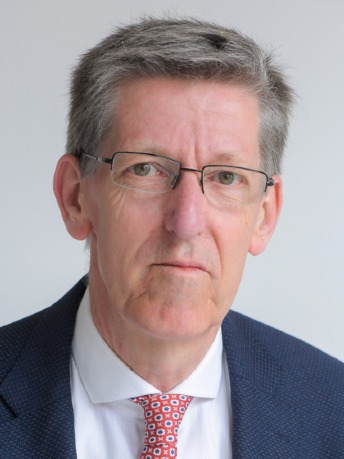Opinion | Full power grid? We need to use this scarce resource more efficiently

A lot has been said about the grid becoming congested, and efforts are being made to expand it. However, expanding the grid is not the most efficient solutionr, especially in the short term, says Machiel Mulder, Professor of Energy Economics at the University of Groningen. According to him, we need to apply economic principles to this problem. Distributing this scarce resource more efficiently is a more effective solution for now than building and expanding. After all, that would take time and money, not to mention the effects on the landscape. In his opinion, there is much more merit in using a scarce resource more efficiently and smoothing out the peaks in usage. But in order to do that, we have to start thinking differently about electricity.
Written down by Marrit Wouda, Corporate Communicatie UG
A full bathhouse
‘First of all: saying that the grid is ‘at capacity’ is actually not the best depiction of the problem. It is not a bathtub filling up, it is more like a bathhouse, and because an increasing number of people want to access it, they have to wait outside the door until they are allowed in. In practice, that means that new housing estates, charging stations, solar farms, and businesses cannot be connected to our power grid. This is currently a big problem as it leads to huge costs and inconvenience for the people and businesses affected. Obviously, there is a lot of work involved in expanding the power grid: it requires labour, time, and plenty of things to be arranged. That is why it is important to apply economic principles to solving this problem in the short term. Economics is about dealing with scarce resources and how they are allocated. In the case of power grids, we have always pretended that such scarcity does not apply, but in fact it does. That is why we now have to think about ways to distribute the scarce resource.’
Sharing peaks
‘How do we go about doing this now? The allocation of grid capacity is mainly based on users’ peak usage. Beyond that, there is plenty of capacity. If we smooth out those peaks, for instance by shifting power consumption to other times, we make more efficient use of the space we have on the grid and can connect many more people and businesses. We can achieve this behavioural change by charging higher connection tariffs at peak times. By doing so, you make the price of the connection dependent on the scarcity in the network. Instead of people having to wait outside the bathhouse, we then say: you can come in, but you will have to pay more at certain hours. You might ask how fair we think that is: I need power for goodness sake, and now I have to pay more because others are overloading the grid? Research[1] I carried out a few years ago showed that people are quite willing to go along with this, if you clearly explain the reasoning, and if the proceeds do not end up in the pockets of shareholders but are invested in the grid. Another example are so-called interruptible contracts. In this case, a company agrees on a certain capacity with the network operator, but when the network operator has a capacity problem, it can interrupt or limit the connection. Of course, this will be announced in advance and the customer will pay a lower tariff for the contract in return.’
A small piece of the pie for everyone
‘That is a very different way of working, but it isn’t that strange: prices of tickets for a concert or a plane trip also vary over time, and we plan for that too. We are not used to applying this to electricity because until now it was always available at a fixed rate. But the point is that the energy transition is causing the power grid to not always be available for all uses. We will be using this grid a lot more, so we have to assign and consciously allocate who will be given access, and who will not—whether we like it or not. If we continue on the current path, we adopt a first come, first serve approach: those who have a connection can continue to use it, but newcomers cannot be allowed in. Not only is that inefficient, but it is also unfair. By starting to allocate the scarce power grid based on preferences, i.e. what people are willing to pay for its use, much more space will become available, as people and businesses will then be incentivized to shift their power consumption to other times. An added benefit of this changing grid use is that grid operators will have to invest less in expansion, resulting in significant cost savings. Of course, you have to ensure that the grid remains available for normal household use at normal tariffs, as electricity is and will remain a basic supply.
[1] https://www.sciencedirect.com/science/article/abs/pii/S0301421517303129
More news
-
09 December 2025
Are robots the solution?
-
10 November 2025
Decentralization of youth care
